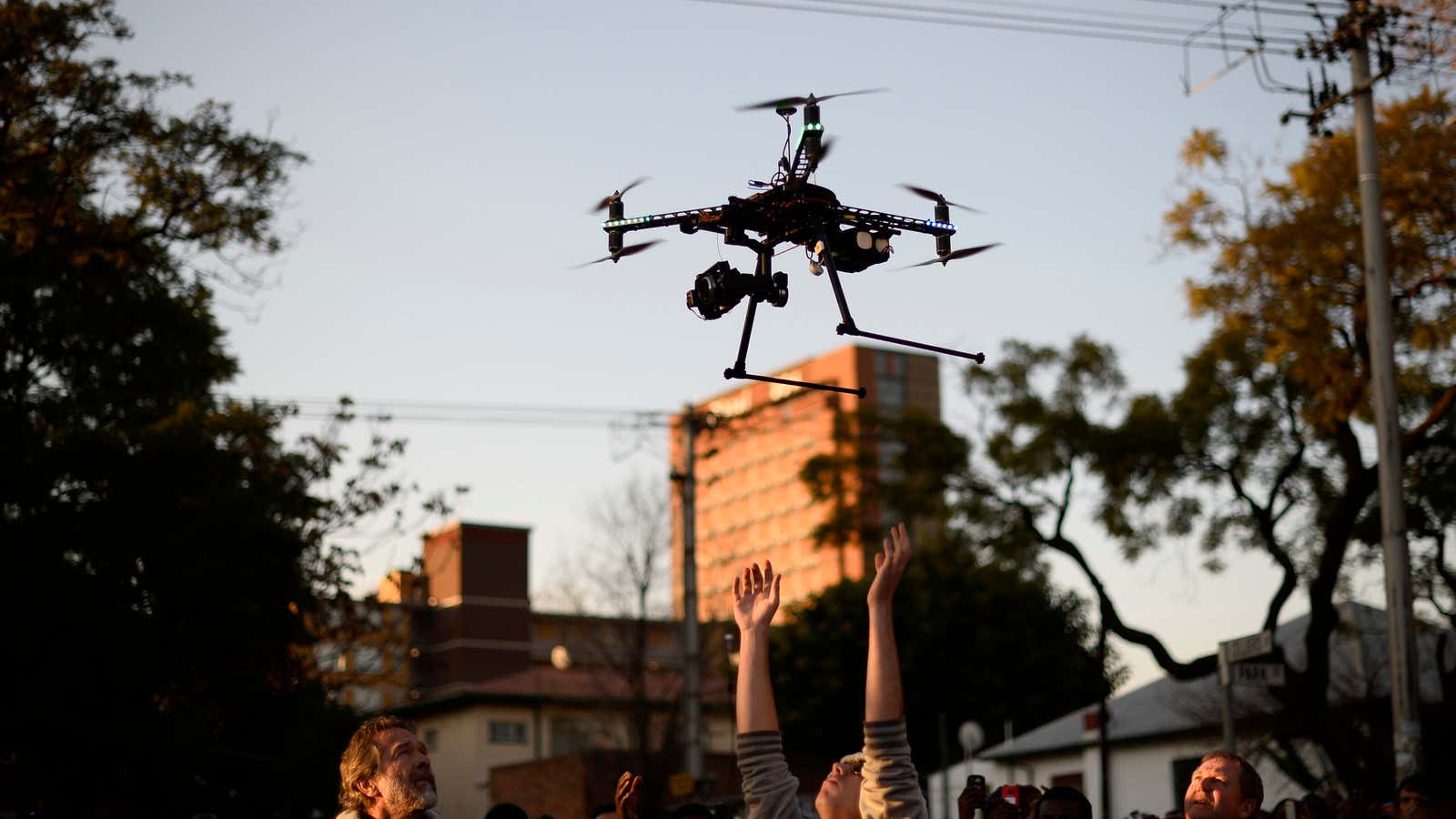South Africa launched new regulations on Wednesday that will free up personal use of drones but significantly raise the bar on being able to deploy drones for commercial use in the country.
Drones have been used for a variety of purposes in South Africa for a while now including Kruger National Park’s anti-poaching efforts, and for a crime surveillance pilot project in Cape Town. Up till now, using drones without special approval from the South African Civil Aviation Authority was considered to be illegal.
From today, anyone over the age of 18 can buy a drone with or without a license in South Africa. Once you have a drone, you’re free to operate it on your own property. You can choose to fly it for fun, or you could use it for more practical purposes like home surveillance–with the caveat that you keep a distance of 50m between the drone and you.
The catch, however, is if you would like to use drones for commercial purposes, like: deliver goods, run a paid-for surveillance business or gather news. If these are your business interests, then South Africa’s new regulations (pdf) have onerous licensing demands lined up for you.
Onerous licensing
Registering a drone is the easy part—it’s the licensing part that is a bit complicated, and frankly, onerous.
Getting a commercial license could take over two months to process, and cost you anything between $1200 and $4000, depending on the size of your drone. As part of the licensing process, you need to prove that you’re proficient in English, a doctor needs to medically examine you–and finally–you need to pass two tests: a skills test, and a theory test on operating a drone.
It doesn’t end there. The license is only valid for 24 months, three months before the license expires, the South African Civil Aviation Authority needs to re-examine your suitability to operate a commercial drone. If you’re found to have contravened any of the new rules, you could be held liable for a $5000 fine, or spend 10 years in jail.
Hennie Kieser, chairman of the Commercial Unmanned Aircraft Association of Southern Africa (CUAASA) said they commissioned Roelof Botha, one of South Africa’s top-rated economists, to do a baseline study on the possible economic impact of commercial drones.
“Our study found that if 60 medium companies were allowed to operate, they could inject at least $40 million into South Africa’s economy annually, and have other spin-off benefits in research and development,” said Kieser.
Some legal experts are claiming the new drone laws could be among the most stringent on the globe.
“There’s room to relax the requirements to would allow commercial users carry out their business operations without overriding the government’s security concern,” said Richard Chemaly, candidate attorney at one of South Africa’s leading firms, Cliffe Dekker Hofmeyr. I suspect that as more countries begin to legalize drones, South Africa might decide to amend its regulations to enable a bit more flexibility for the commercial users.”
South Africa is not alone among African countries concerned with how drones will be used. While Kenya is yet to introduce formal regulations for drones, the Kenyan Civil Aviation Authority issued a notice earlier this year, prohibiting the purchase and use of drones without clearance from the country’s defence ministry.
